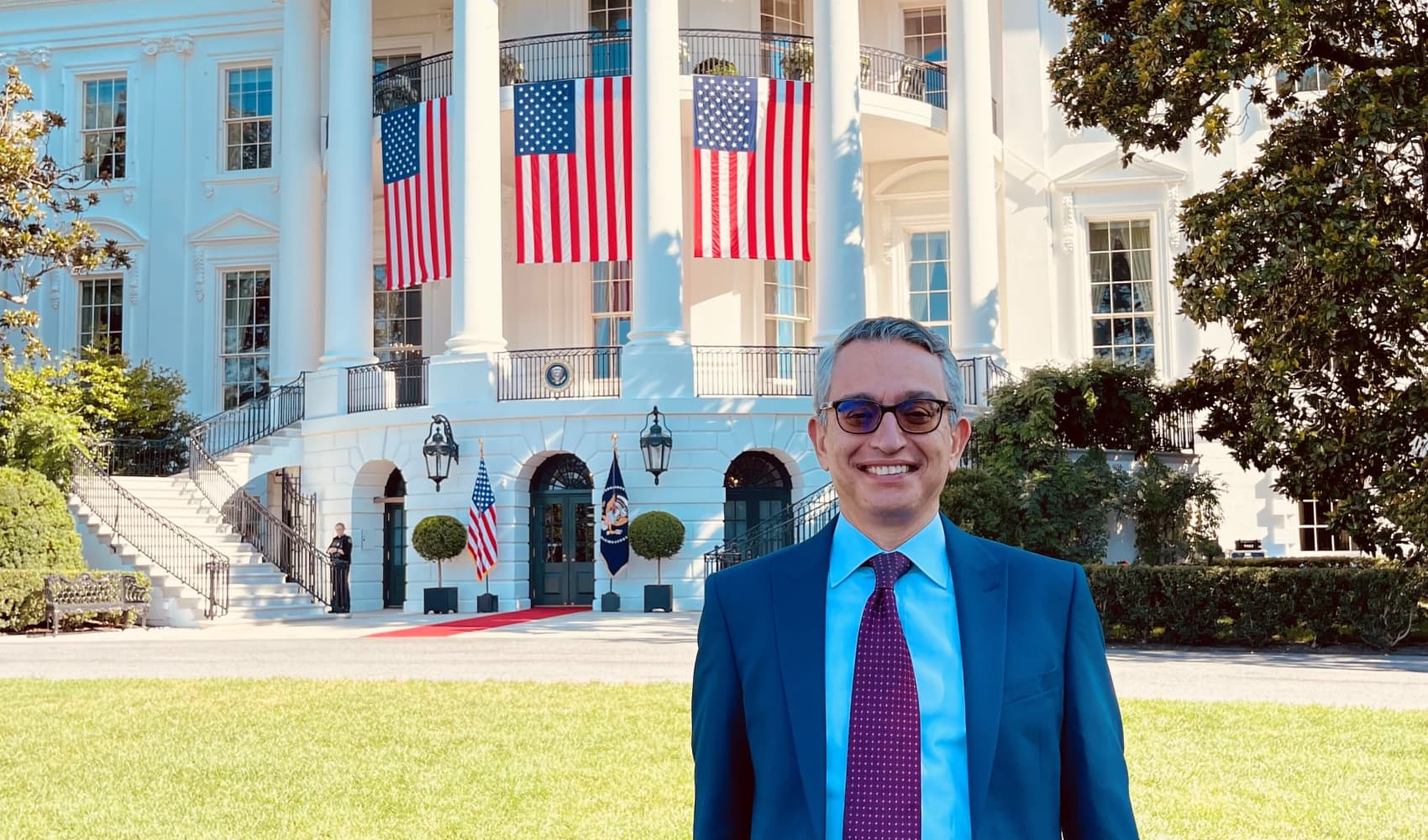
With Planet Earth running a fever, U.N. climate talks focused Sunday on the contagious effects on human health.
Under a brown haze over Dubai, the COP28 summit moved past two days of lofty rhetoric and calls for unity from top leaders to concerns about health issues like the deaths of at least 7 million people globally from air pollution each year and the spread of diseases like cholera and malaria as global warming upends weather systems.
World Health Organization Director-General Tedros Adhanom Ghebreyesus said it's high time for the U.N. Conference of Parties on climate to hold its first “Health Day” in its 28th edition, saying the threats to health from climate change were “immediate and present.”
“Although the climate crisis is a health crisis, it’s well overdue that 27 COPs have been and gone without a serious discussion of health,” he said. “Undoubtedly, health stands as the most compelling reason for taking climate action.”
We're making it easier for you to find stories that matter with our new newsletter — The 4Front. Sign up here and get news that is important for you to your inbox.
After two days of speeches by dozens of presidents, prime ministers, royals and other top leaders — in the background and on-stage — participants were also turning attention to tough negotiations over the next nine days to push for more agreement on ways to cap global warming at 1.5 degrees Celsius (2.7 Fahrenheit) since pre-industrial times.
Pope Francis, who was forced to abandon plans to attend because of a case of bronchitis, on Sunday said that “even from a distance, I am following with great attention the work.” In remarks read at the Vatican by an aide, the pope called for an end of what he called “bottlenecks” caused by nationalism and “patterns of the past.”
US & World
Protests began in earnest Sunday at COP28: In one, a group gave mock resuscitation to an inflatable Earth.
“Well, I mean, it’s cheesy doing CPR on the Earth,” said Dr. Joe Vipond, an emergency room physician from Alberta, Canada, who took part. “We’re kind of in a lot of trouble right now," he said, so will do "anything we can do to bring attention to this issue.”
Saturday capped off with conference organizers announcing that 50 oil and gas companies had agreed to reach near-zero methane emissions and end routine flaring in their operations by 2030. They also pledged to reach “net zero” for their operational emissions by 2050.
U.N. Secretary-General Antonio Guterres said “the promises made clearly fall short of what is required.”
In comments Sunday, he called the methane emissions reductions “a step in the right direction.” But he criticized the net zero pledge for excluding emissions from fossil fuel consumption — where the vast majority of the industry's greenhouse gases come from — and said the announcement provided no clarity on how the companies planned to reach their goals.
"There must be no room for greenwashing," he said.
Germany’s climate envoy Jennifer Morgan said Sunday the oil and gas industry needs to go beyond just cutting emissions that are generated to make those products and slash emissions from indirect activities too, as well as fossil fuels burned by the end users.
“It’s 2023,” the former Greenpeace International co-director said. “I was already speaking to Shell about this in 1998.”
Temperature rises caused by the burning of oil, gas and coal have worsened natural disasters like floods, heat waves and drought, and caused many people to migrate to more temperate zones — in addition to the negative knock-on effects for human health.
“Our bodies are ecosystems, and the world is an ecosystem,” said John Kerry, the U.S. climate envoy. “If you poison our land and you poison our water and you poison our air, you poison our bodies.”
He said his daughter Vanessa, who works with the WHO chief, “repeats to me frequently that we should not measure progress on the climate crisis just by the degrees averted, but by the lives saved.”
A COP28 declaration backed by some 120 countries stressed the link between health and climate change. It made no mention of phasing out planet-warming fossil fuels, but pledged to support efforts to curb health care sector pollution, which accounts for 5% of global emissions, according to the WHO head.
In the United States, 8.5% of greenhouse gas emissions come from the health sector and the Biden Administration is trying to use funds from the Inflation Reduction Act to try to cut that down, Assistant Secretary of Health and Human Services Admiral Rachel Levine said.
U.S. officials said one of the main issues has been waste anesthesia emissions from hospitals and greenhouse gases that escape when patients are treated for respiratory diseases like asthma with albuterol inhalers.
Part of the solution may come through raising awareness: when officials used a system that showed anesthesiologists how much gas they used and how much escaped, emissions fell by as much as half, said Dr. John Balbus, the Health and Human Services climate change and health equity director.
Dr. Yseult Gibert of Montreal said 70 percent of operating-room emissions come from the way patients are given anesthesia. She said some types of anesthesia are more climate-friendly than others, without sacrificing on quality or effectiveness when it comes to care.
A report last week issued by Unitaid, which helps get new healthcare products to low- and middle-income countries, explored how product redesign, improvements in manufacturing and other measures could reduce the carbon footprint of 10 products used for health emergencies, women's and children's health, and HIV, malaria and tuberculosis.
Forest fires caused in part by climate change can have dramatic effects on homes, health and lives. Heat waves, which can be deadly, also can weigh on mental health, Gibert said, while poor air quality can make life harder for those facing lung and heart ailments and cause respiratory issues, like asthma in kids.
“Not a lot of people know that the climate crisis is a health crisis,” she said.
The impact of human activity on the climate was visible to conference-goers in Dubai, an oil-rich boom city that often faces higher levels of air pollution than other places on Earth due to its location. Haze is common.
The Dubai government, on its web site, listed its Air Quality Index level mostly at “good” on Sunday.
IQAir, a Swiss vendor of air-quality monitoring products, listed Dubai as the city with the 18th-worst air quality in the world with “moderate” air quality levels as of noon local time on Sunday. It cited high levels of two types of particulate matter in the air and advised mask-wearing for “sensitive groups” and a reduction of outdoor exercise.
Associated Press writers Jon Gambrell, Seth Borenstein and Peter Prengaman in Dubai and Frances D'Emilio in Rome contributed to this report.




